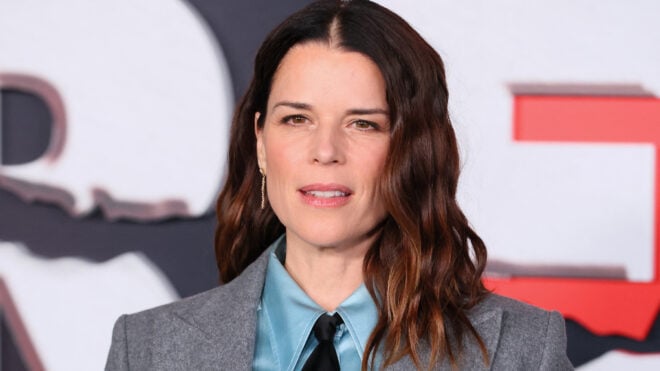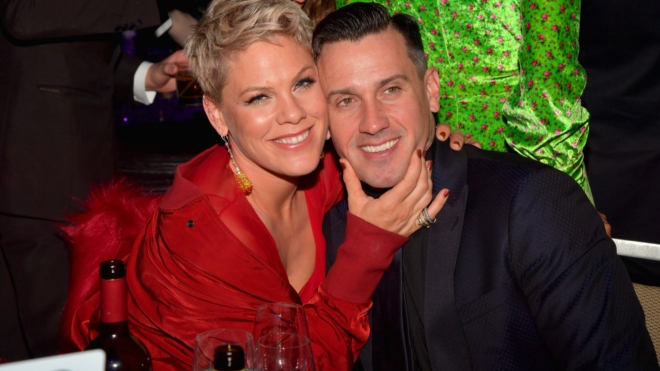My husband and I became foster parents earlier this year. We did not enter into this journey lightly; in fact, we spent years going back and forth on this topic before finally deciding to go for it. To be honest, the idea of bringing foster kids into our home always felt daunting, a lot like anything unknown usually does.
Our reasons for becoming foster parents have changed over the years. Initially, it seemed like a wonderful way to raise children and potentially adopt another child or two (we are parents to a 10-year-old). After tossing that back and forth for a while, we came to the realization that adoption wasn't really our thing, and we put foster care on the back burner.
It feels like you rarely hear stories about people going into foster care to do anything but potentially adopt, so it didn't occur to us that there might be other paths out there. (You also rarely hear stories about foster parents who aren't religious. Since we aren't believers in anything but Bob Dylan and magic, we were doubly unsure if this was the thing for us.)
After we moved back to Tennessee in 2018, the idea resurfaced. This time, becoming foster parents felt like a really incredible way to help reunify families who need guidance and support. We still didn't really know if a lot of people go into foster care for that purpose, so we signed up for classes and went to check it out.
It turns out that (thankfully), yes, lots of people become foster parents with the goal of reunifying families. But when reunification is genuinely your goal, the onus of responsibility falls on you, the foster parent, to do everything you can to make that happen.
Once our kiddos moved in, we quickly realized two things: (1) Their mom would need every bit of help and support we could give her, and (2) giving that help and support would be one of the hardest things we would do. It's one thing to raise children with an ex whom you at least liked a little bit once upon a time; the birth mom of your foster kids is someone who is entirely shrouded in mystery.
We have learned quite a few solid lessons throughout our time as foster parents, and I'm sharing them today in hopes that they will help others who find themselves headed down a similar path.
Lesson 1: Reassure their mom up front
When we first received the contact information for the mom of our boys, I wanted her to immediately know two big things: We were going to take great care of her kids, and we were not trying to adopt her children. I felt like the former is obviously important, but the latter was a distinction that I made in hopes that it would help us build a relationship based on trust.
It turns out, it did. While it understandably took her a week or two to reach out, she was immediately much warmer and kinder than I had anticipated. The lesson here: Being honest is kind of cool.
Lesson 2: If you say co-parenting, you better mean it
Something that happened for us is that it was super easy to co-parent at first, but it sometimes felt cumbersome as the boys lived with us for longer periods of time. However, it felt (and feels) really important to make sure we include their mom in as many decisions as we possibly can. You are legally required to ask permission to cut the hair of the kids you have in your home, for example, but you don't have to ask if they like bananas or apples, what they should be for Halloween, or what kind of birthday cake she wants them to have.
Sometimes it's annoying to have to take the extra time to send a question and wait for a reply, but when the goal is to help the mom of your kids feel like she's still as involved as she can be, it's worth it.
Lesson 3: Do have boundaries
Having said that, you should have boundaries in place. As in anything you commit yourself to, foster parent burnout is real, and it's a lot to be managing your children, your foster children, your home, your job, your relationship, and so on … and to be reaching out to another full-grown adult and making sure she's doing OK, too.
As far as it goes in the foster parent circles I run in, our boundaries are pretty liberal. The mom of our kids has my phone number, she can contact me via Facebook Messenger, and I respond when I'm able between 8 a.m. and 6 p.m. — basically, when the kids are awake. That doesn't mean that I don't get messages in other hours, but it does mean there won't be any answers until I am ready to answer.
Lesson 4: Cling to your successes
Sometimes, you are going to be the PERFECT foster parent. You'll invite mom to the park, the kids will be thrilled to see her, she'll get to hold onto her babies and love them and kiss them, and your heart will swell and you'll pat yourself on the back like 18 times — and you SHOULD.
Those moments, unfortunately, will not make up most of your time as a foster parent. This is true even if you have a great relationship with the parent of the kids in your home, and it's definitely true if you don't. So it's important to celebrate every good day and moment, even if you're also anxious about what could be lurking around the corner.
Lesson 5: You will fail
The reason lesson 4 is so important is that lesson 5 is just … true. Even with the best relationship and the best intent and all the best goals, the foster care system is hard and tricky and messy, and you're going to feel like you're failing pretty much all the time. It'll happen three days into the experience when you're asking yourself why on earth you guys ever signed up for this. It'll happen again when part of the reunification plan goes sideways.
In fact, you'll experience feelings of failure so often as a foster parent that at some point, you'll lean into it and accept it, or … you won't. And that's a journey that really only you can make for yourself. I encourage everyone who is even curious about foster care to really ask themselves what the worst-case scenario looks like … and then to realize that there's no way they can predict where foster care will take them.
While I'm not sure we will continue to be foster parents after the current journey we are on wraps up, I can say with full confidence that our experience as foster parents has been life-altering in ways I never could have predicted, and being open to having a real relationship with the mom of our kids has been a huge part of that.
I think there is a quick tendency to assume that everyone who loses custody of their children must be a monster, or that foster parents can, by default, give the kids in foster care a "better life." To the former, I simply shrug and ask, "What informs your opinion?" To the latter, I like to quote my wise friend, MLH: "Well, Bill and Melinda Gates could probably give your children a better life, but should they?"
The reality is that foster care is beyond messy, beyond broken, beyond painful. It's a system that will never really have any winners, because someone is always being broken in the process. For us, choosing to be open to the mom of our kids and to support her as much as we support our kids was a choice to be open to the entire experience of what foster care can mean.
I don't regret becoming a foster parent, but I also won't tell you it's easy or that it's something everyone can handle. But once you're in, putting your heart and energy into lifting up everyone you are able to will never make you feel like you've done a truly terrible job. And who knows? You might just impact a life (or three) for the better.




